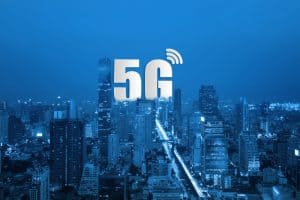
Energy and climate considerations will drive 5G planning and deployment, allowing sustainability-first initiatives to lay the foundation for a new era of communications.
As businesses prepare for the 5G rollout’s full capability, new recommendations for sustainable outreach and energy aren’t far behind. A recent study, “5G Energy Efficiencies, Green is the New Black, authored by GSMA Intelligence, weighs in on the topic.
Energy efficiency in the 5G era
The paper, sponsored by ZTE Corporation, focuses on the history of sustainability in telecommunications networks and what organizations can expect as 5G makes its debut. According to the report, energy consumption is a multi-level consideration — everything from cost reduction to performance optimization and the role 5G planning will play in global carbon emission reductions.
It also examines the realities of energy efficiency throughout the network, identifying the major areas of concern and the tools required. The goal is major end-to-end energy savings and a communication network that benefits the people and not just a corporation’s bottom line.
The paper spells out the driving force behind the industry’s energy efficiency efforts as being:
“The impetus for reductions in energy emissions in the telecoms sector is anchored in the global fight to combat and mitigate climate change, as enshrined in the 2015 Paris Agreement. The urgency has grown markedly over the last two years as governments seek to garner private sector commitments towards the central objective of keeping a global temperature rise this century to a maximum of 2 degrees Celsius above pre-industrial levels. This implies net-zero for most countries by 2050.”
How 5G planning can consider sustainability
A wide range of tools will allow providers to build a network that realizes the IoT of our dreams without sacrificing environmental concerns. GSMA is hopeful that a balance is possible, and careful planning will allow for growth that escapes the consumption challenges of the past. Tools include:
- energy efficient battery solutions
- intelligent, AI-enabled sleep states
- reducing equipment energy consumption
- sunsetting less efficient 2G and 3G networks
- treating each 5G base station individually rather than averaging coverage as a whole
When sustainability is a priority, organizations can reduce operational costs in deploying 5G initiatives and help fight climate change. According to the study, wireless traffic data is expected to triple by 2025, so some kind of intervention is necessary to continue advancement.
Balancing growth and caution is possible
Energy and climate efforts should be front and center with 5G planning and deployment, allowing sustainability-first initiatives to lay the foundation for communications in the new era. Businesses can look forward to streamlined operational costs and fewer interruptions, while global communities as a whole can look forward to sustainable growth.





























